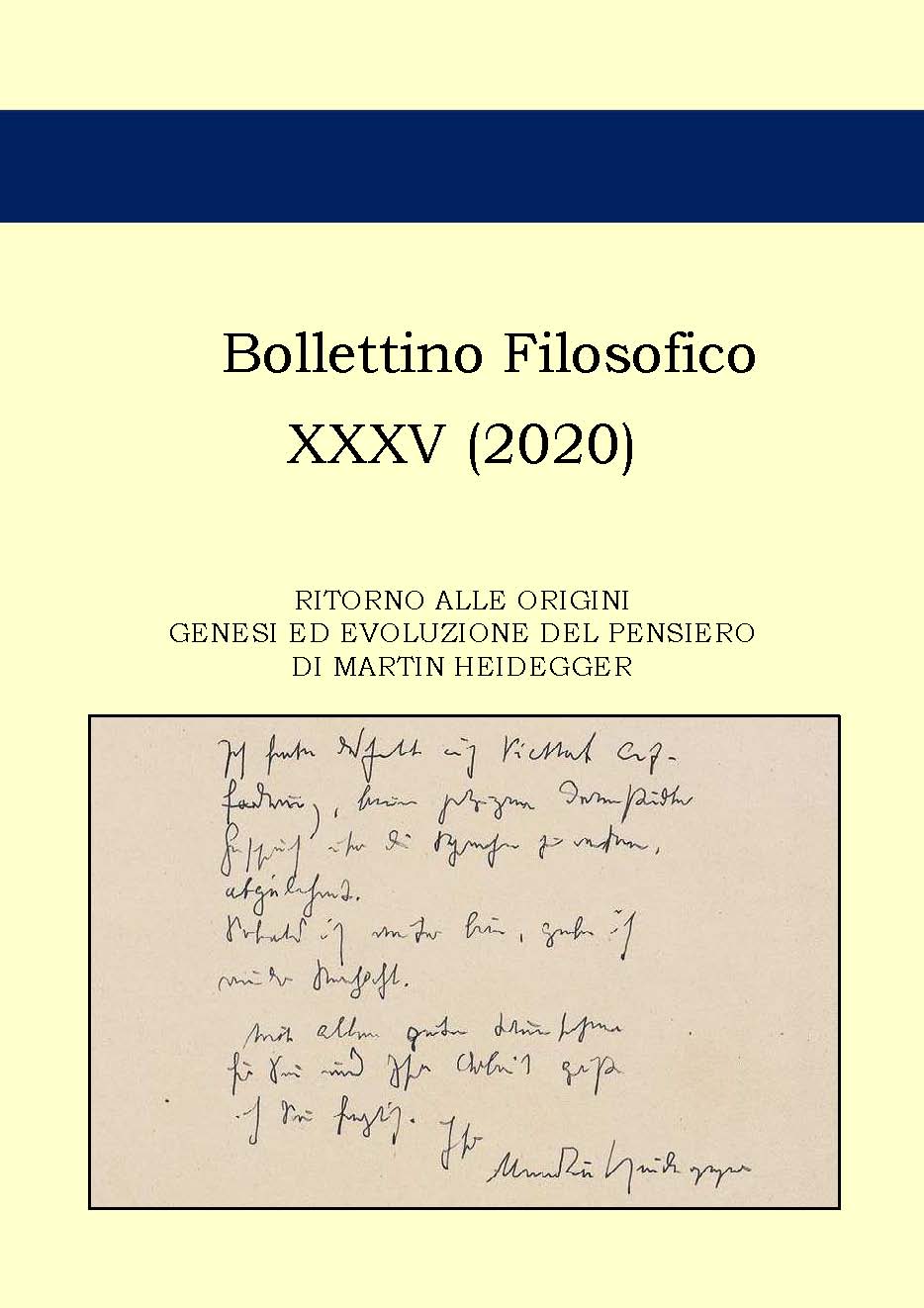Phänomenologie als Urwissenschaft und neue “Metaphysik der Metaphysik”. Die systematische Genealogie von Heideggers philosophischen Anfängen
Abstract
This essay reconstructs the inner consistency and posthumously reconstructable and manageable systematicity of Heidegger’s independent phenomenological beginnings immediately after World War I. Heidegger shares with Husserl the understanding of phenomenology as a primordial science, he specifies this from the logical orientation on the “question of objectivity” and in the “formal display”, which goes back to nominalism. Against this philosophical background Heidegger contradicts the reduction of philosophy on the one hand to scientism and historicism, and on the other hand to worldview. The primary-scientific-philosophical claim rather remains valid, where in first attempts the categories of existence are outlined in a phenomenology of the living world reference of existence, where the counterpoint of “ruin” and “ethos” is sketched as an interpretation of residence, and where ideological and religious approaches to the world are examined phenomenologically. It is the thesis of the treatise that Heidegger thereby already sets the impulse that goes beyond the ‘fundamental ontology’ in Being and Time and aims at a “metaphysics of metaphysics” in the Kantian sense.
Keywords: Existence, Heidegger, Husserl, Metaphysics, Phenomenology
Downloads
Bollettino Filosofico pubblica in internet, ad accesso aperto, con licenza:
|
|
CCPL Creative Commons Attribution |
L'autore conserva il copyright sul suo contributo, consentendo tuttavia a chiunque "di riprodurre, distribuire, comunicare al pubblico, esporre in pubblico, rappresentare, eseguire e recitare l'opera", purché siano correttamente citati l'autore e il titolo della rivista. L’autore, al momento della proposta di pubblicazione, è inoltre tenuto a dichiarare che il contenuto e l’organizzazione dell’opera è originale e non compromette in alcun modo i diritti di terzi, né gli obblighi connessi alla salvaguardia di diritti morali ed economici di altri autori o di altri aventi diritto, sia per testi, immagini, foto, tabelle, sia per altre parti di cui il contributo può essere composto. L’autore dichiara altresì di essere a conoscenza delle sanzioni previste dal codice penale e dalle leggi speciali per l’ipotesi di falsità in atti ed uso di atti falsi, e che pertanto Bollettino Filosofico è esente da qualsiasi responsabilità di qualsivoglia natura, civile, amministrativa o penale, e sarà dall'autore tenuta indenne da qualsiasi richiesta o rivendicazione da parte di terzi.
